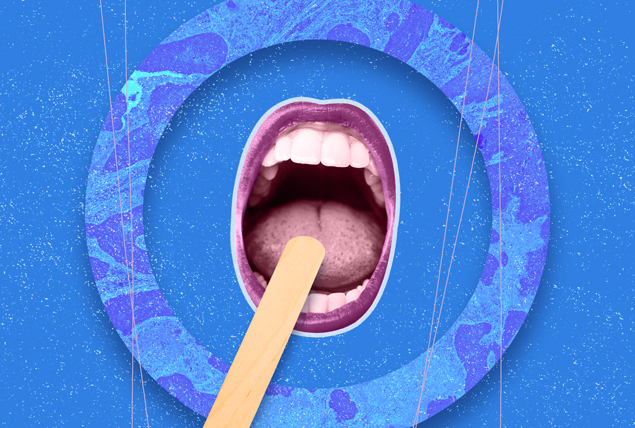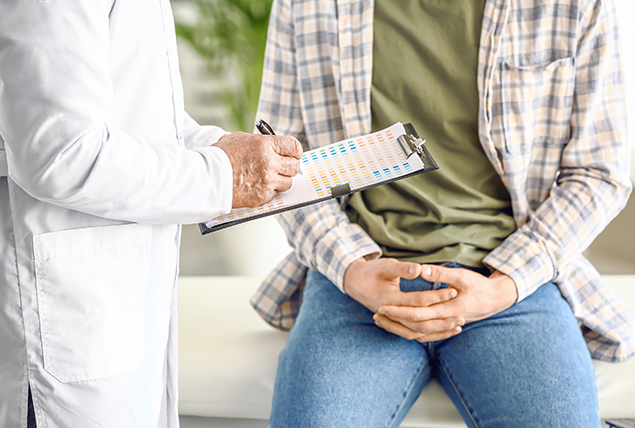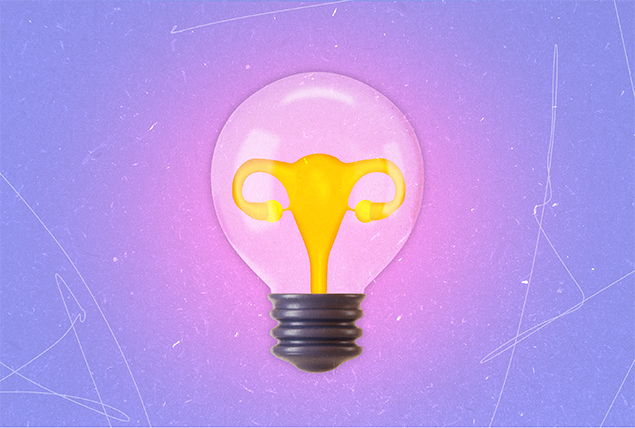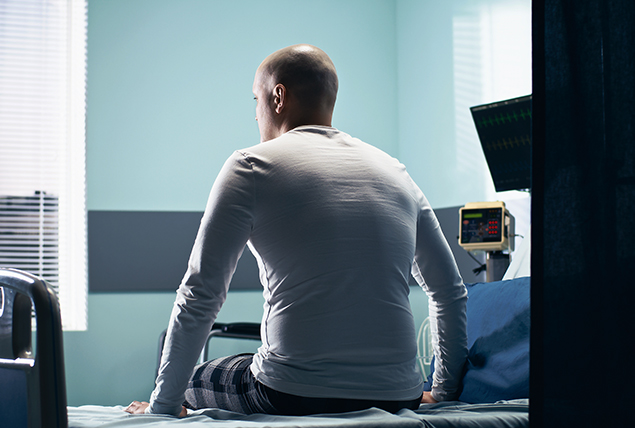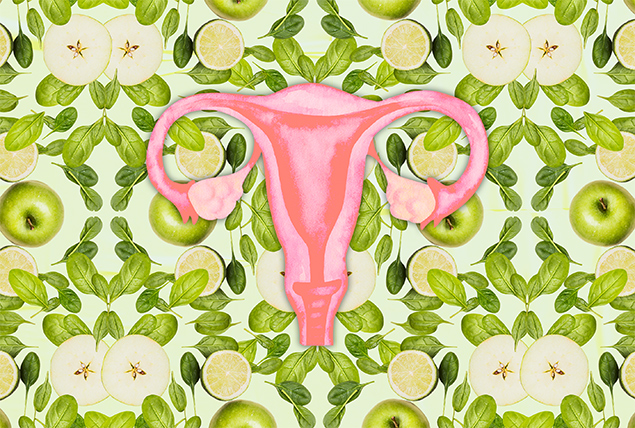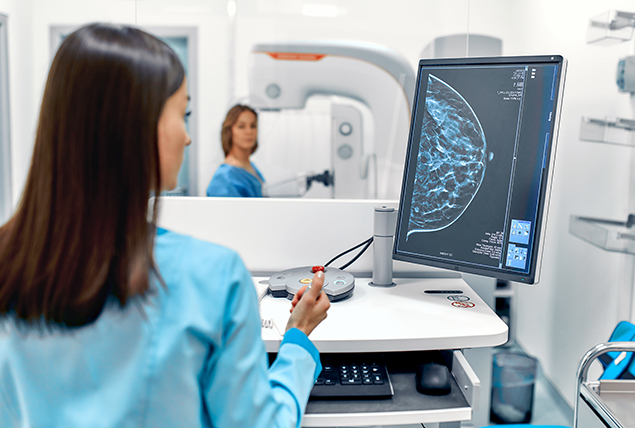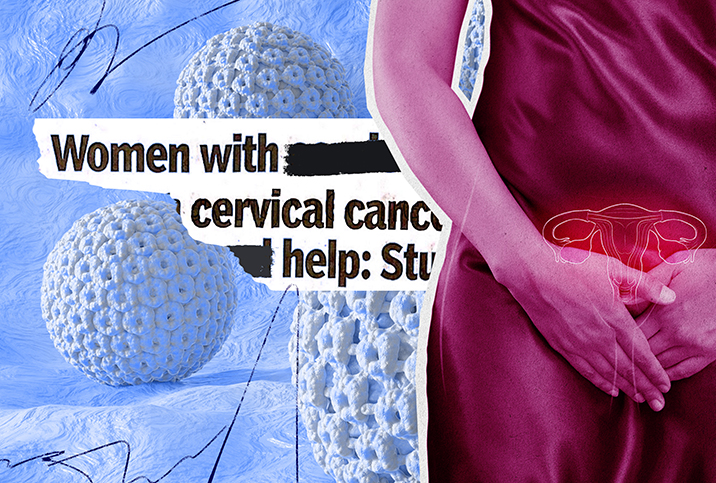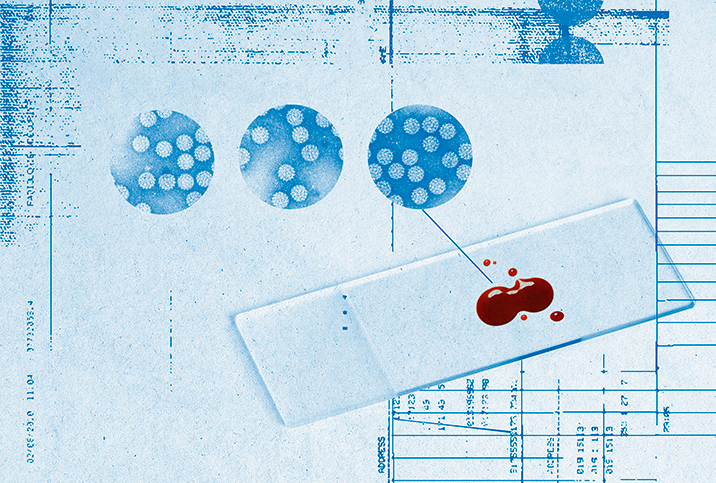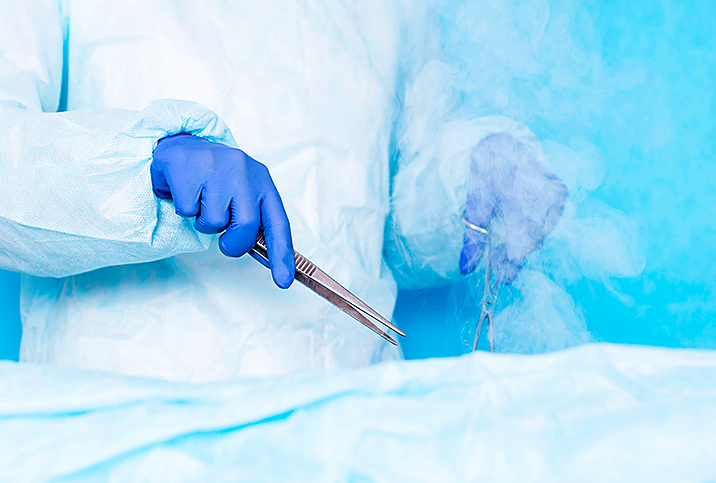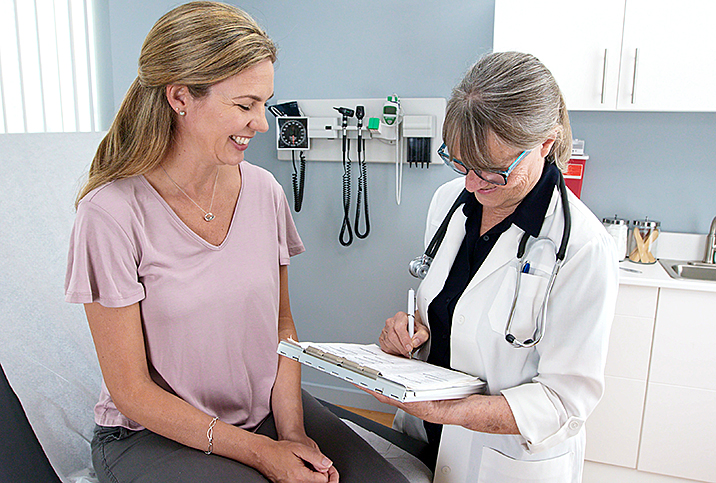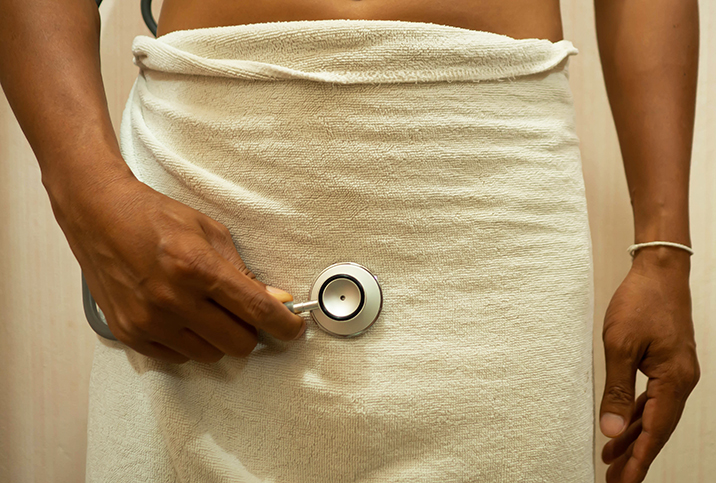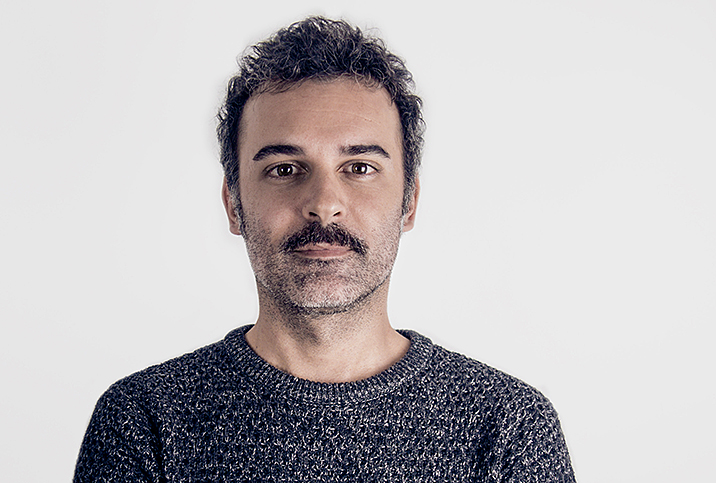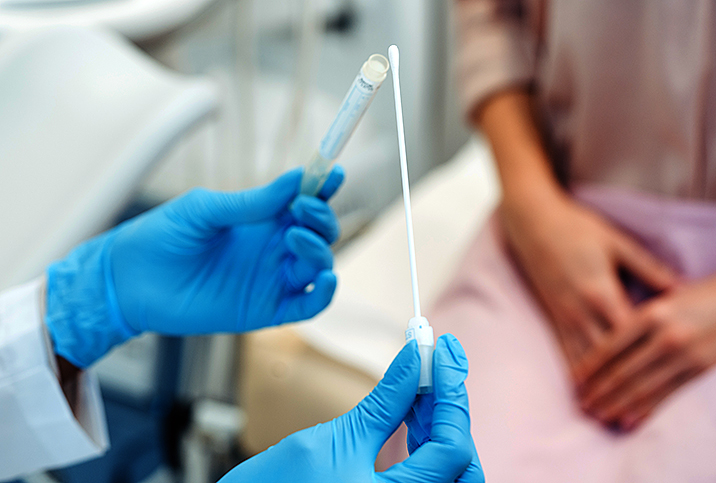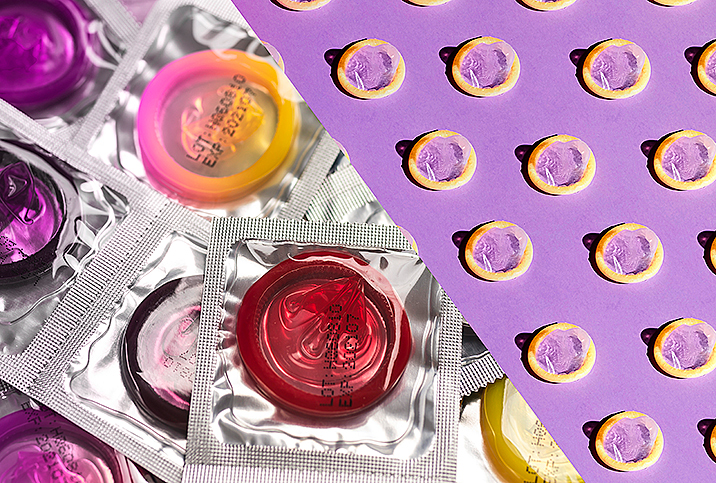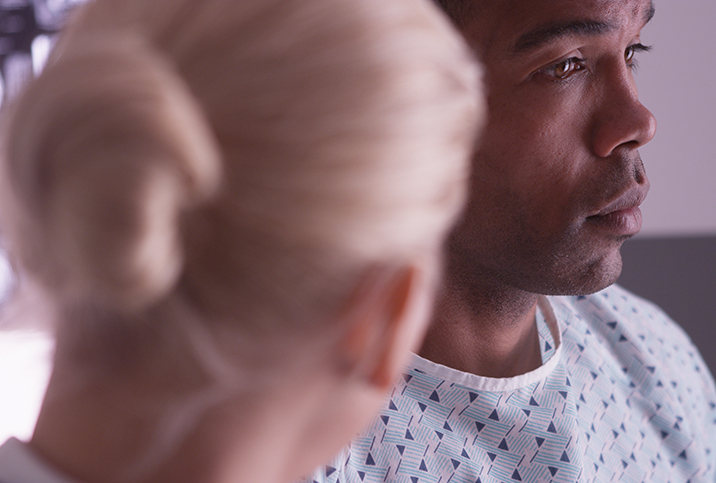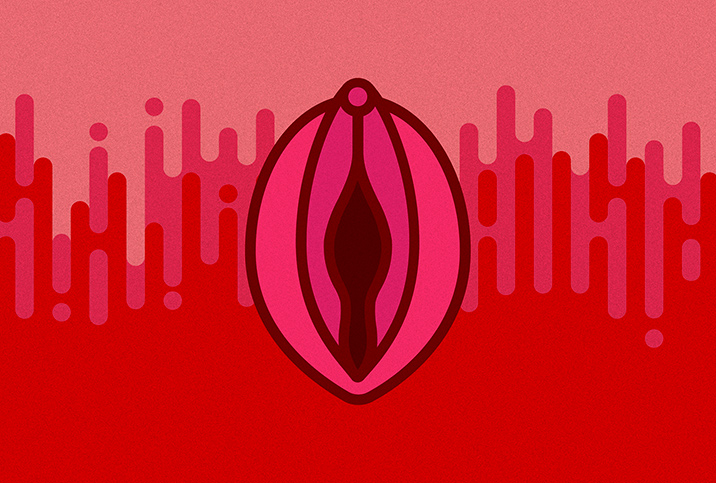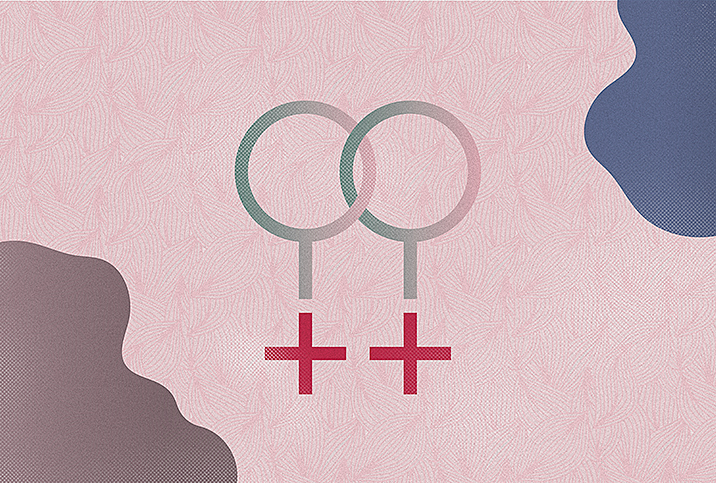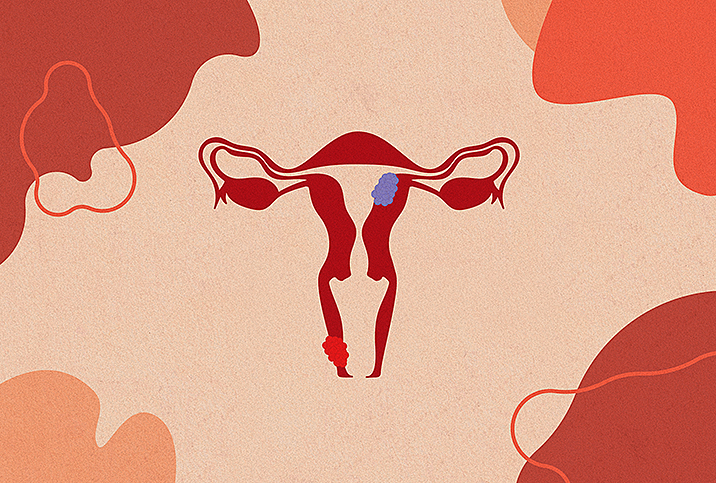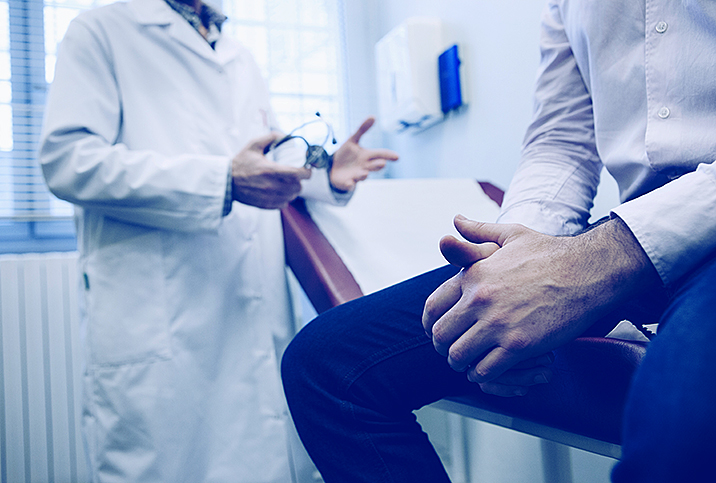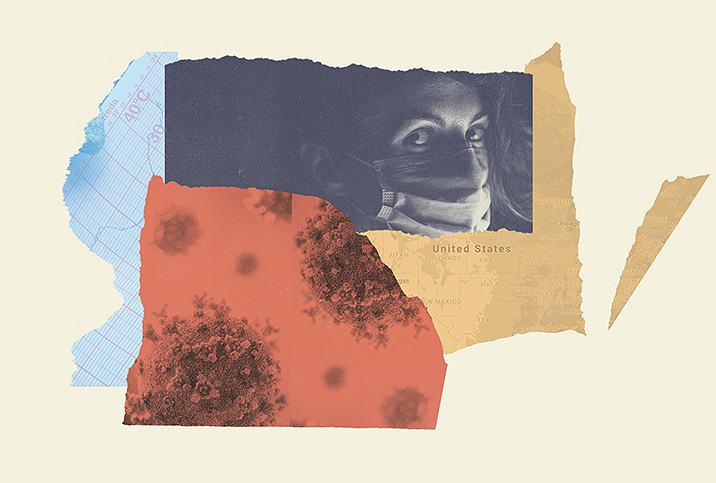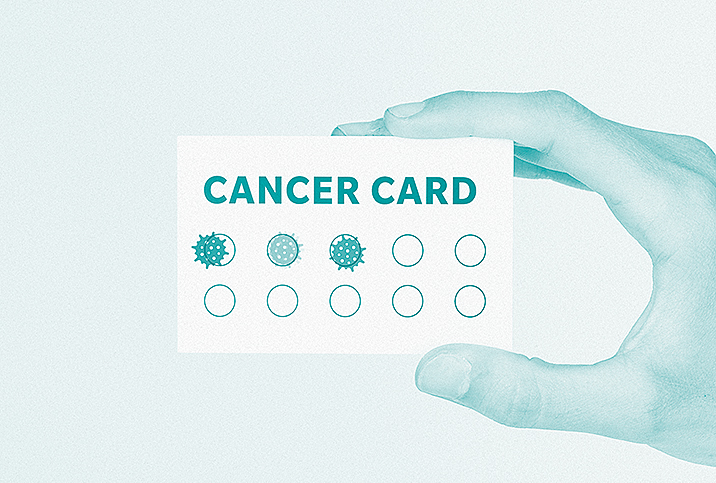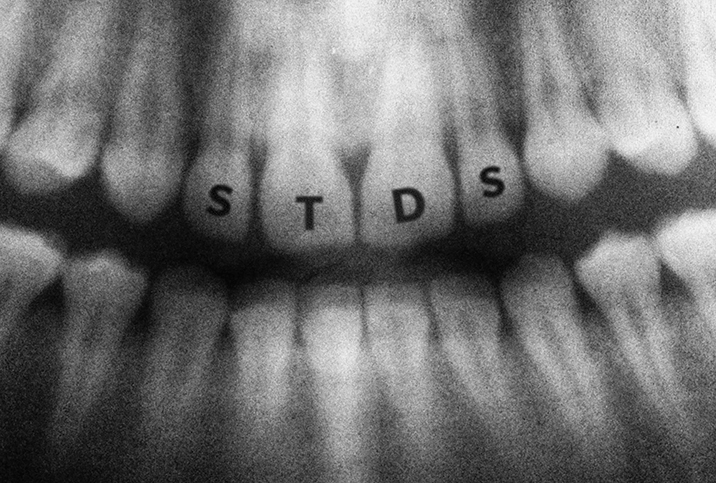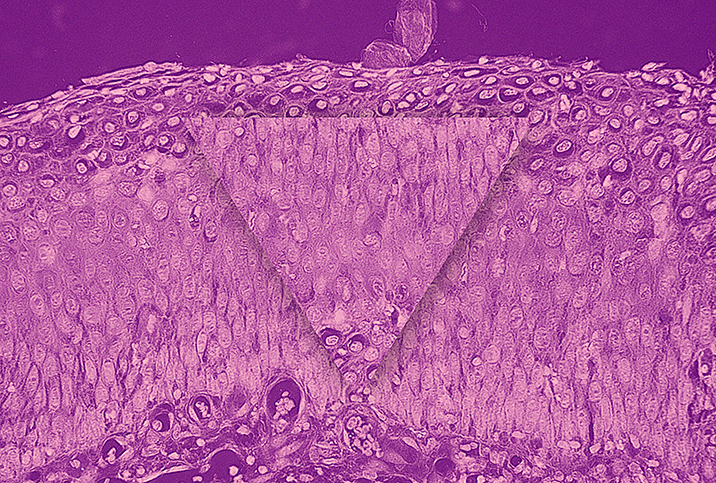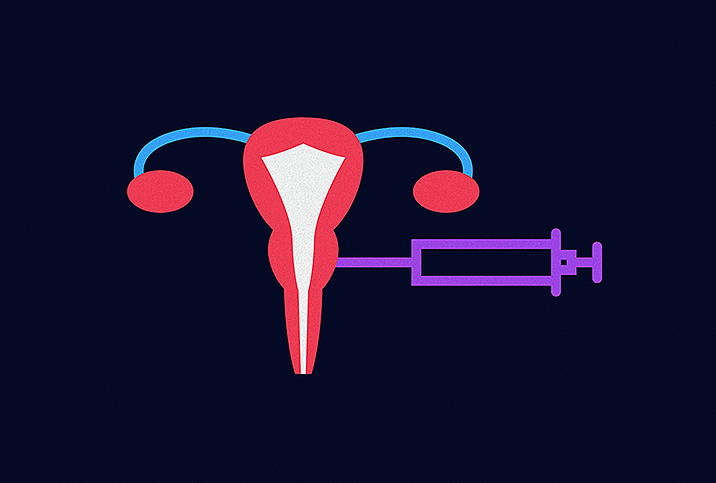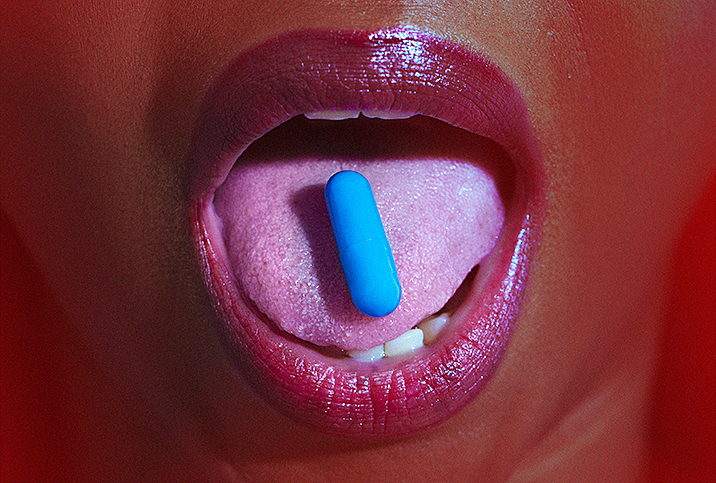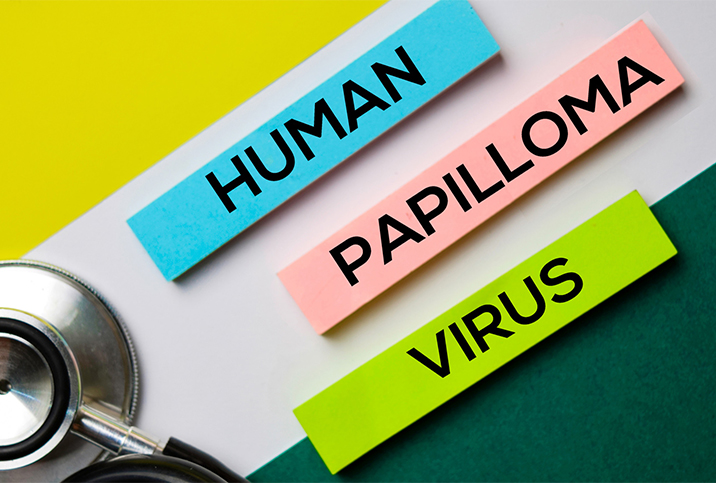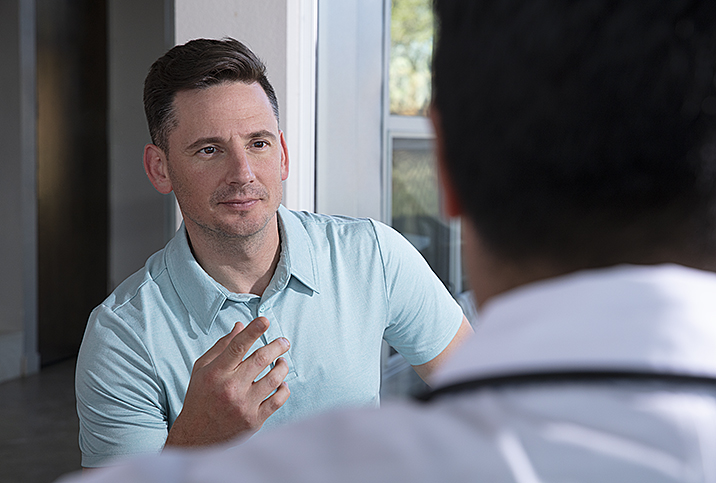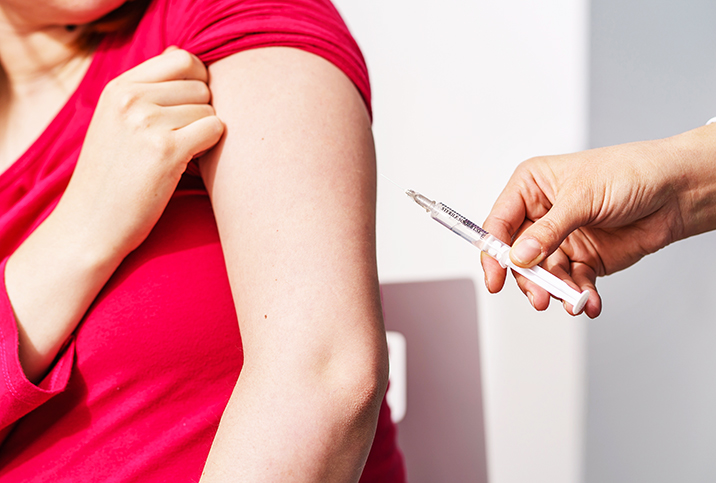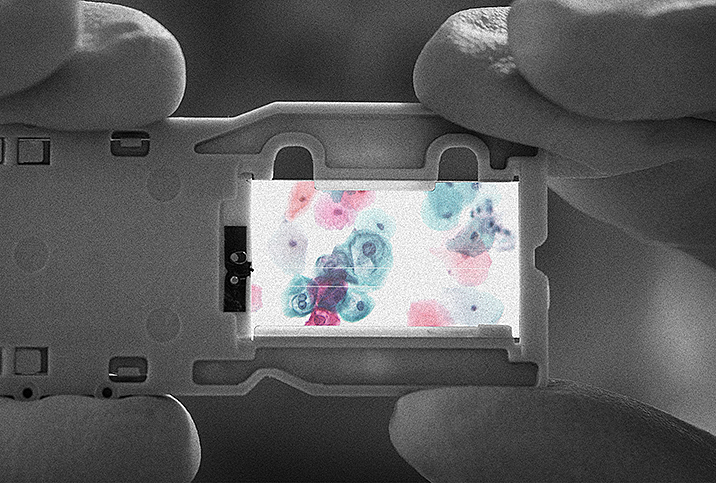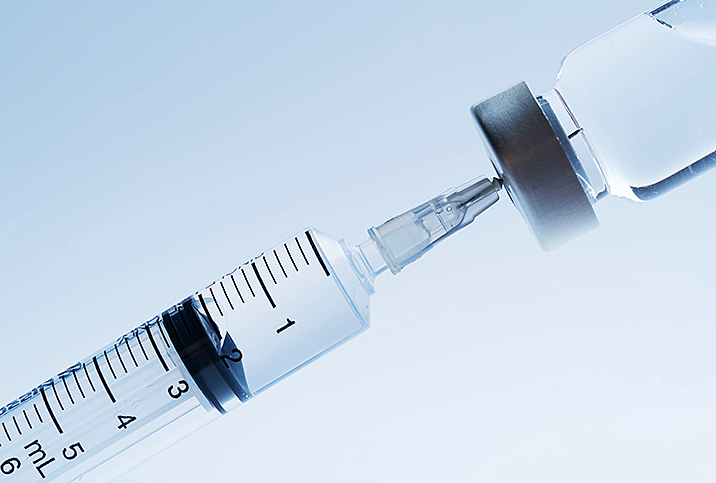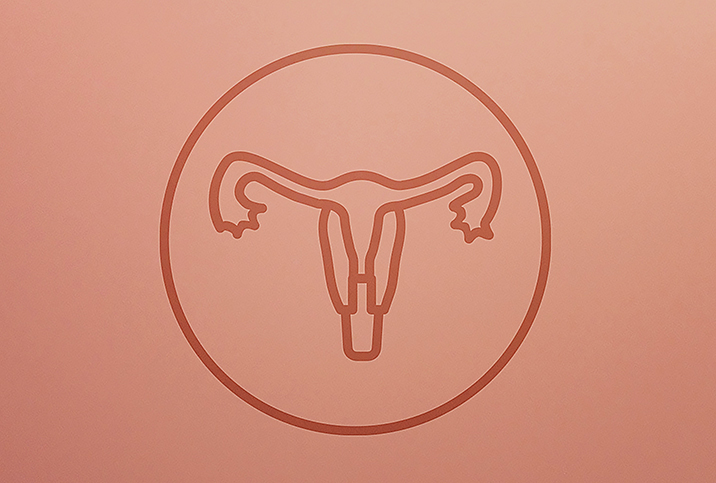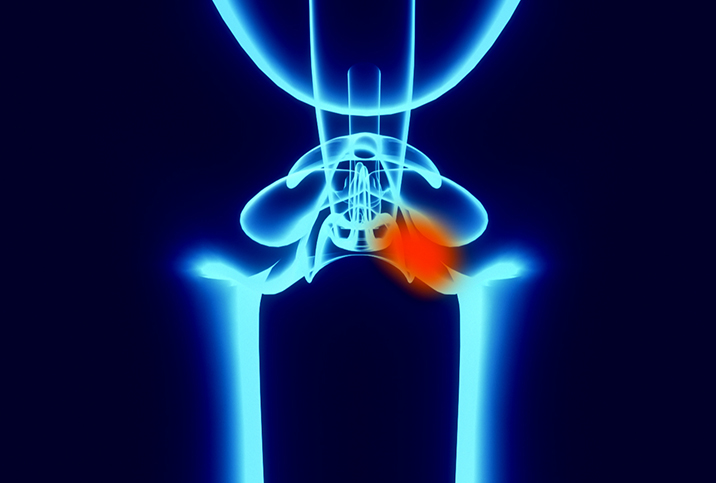New research suggests HPV vaccines work as well in men as women, if not better.
By Kate Daniel
With care and communication, you can have a healthy sex life with genital warts.
Statistics aren't definitive when it comes to cancer. Learn the nuance behind the numbers.
By Helen Massy
Statistics aren't definitive when it comes to cancer. Learn the nuance behind the numbers.
By Helen Massy
A catchy headline on a viral story didn't reveal the full truth. A virus is lurking.
A catchy headline on a viral story didn't reveal the full truth. A virus is lurking.
Circumcision may reduce STI risk in general, for men and their female partners.
By Helen Massy
Circumcision may reduce STI risk in general, for men and their female partners.
By Helen Massy
Diagnosing and treating the condition can help you heal faster and prevent recurrent flare-ups.
This important part of the anatomy is integral to menstruation and reproduction.
By Alex Denny
This important part of the anatomy is integral to menstruation and reproduction.
By Alex Denny
Did you know that some people may be more at risk of certain cancers than others?
By Meg Walters
…and maybe a few things you did know about human papillomavirus, an extremely common STI.
By Lauren Dodd
Experts warn such cases may soon surpass HPV-induced cervical cancer instances in women.
By Lauren Dodd
Safer sex and routine screenings go a long way toward cervical well-being.
By Xenia E.
Genital warts are common, but so are myths about them, their origins and their treatment.
By Kate Daniel
There's some evidence suggesting a tie between the two conditions, but more studies are needed.
Educate yourself first before you tell your date or partner about your virus.
By Reniel Anca
Though there isn't a medicinal cure, there are acceptable ways to treat HPV warts successfully.
By Reniel Anca
This sexually transmitted infection may clear up naturally, but don't take testing for granted.
By Reniel Anca
Here's a guide to what you need to know. The first priority is screening.
New research highlights a possible gap in screening for the disease in the 65-plus population.
By Lauren Dodd
You can pass the infection to your sex partners even if you have no symptoms.
By Reniel Anca
The 'why' of the increase is unknown, but a new study shows the need for screening and vaccines.
By Kate Daniel
Most cases are caused by HPV, but a small risk exists for people who aren't sexually active.
A new study reaffirms a strong link between this gynecological cancer and human papillomavirus.
Convenient and noninvasive, a new diagnostic test for cervical cancer is on the horizon.
By Helen Massy
Diagnoses of these ailments, whether benign or malignant, are reasons to visit your doctor.
Malignancies treated sooner rather than later can spare the patient a potential penectomy.
The link between cigarettes and human papillomavirus is more pronounced than you might think.
This treatment option may encourage the cervix to produce normal cells.
Its symptoms can be nil, its effects not felt for years, but HPV should be top of mind.
By Rachel Crowe
Giddy talks to executive director Heather White about funding global access to resources.
A supportive doctor can mean better communication and better overall health outcomes.
By Xenia E.
When it comes to STI prevention, education beats criminalization.
By Xenia E.
Demystify the gaps in sex ed, and learn practical solutions to keep you safe.
By Xenia E.
Americans ages 9 to 26 can be vaccinated against HPV—but what if you're older?
HPV causes more than 60 percent of cases—and most sexually active people have had it.
Working with your doctor can help prevent future complications.
By Holly Ellis
Most are curable, but when left untreated, secondary complications can be life-threatening.
By Holly Ellis
That skin irritation could be a sign of an STI.
By Holly Ellis
While this disease is uncommon, it's also dangerous, so early detection is key to beating it.
Prevent or safely handle an asymptomatic infection with a bit of health management.
By Rachel Crowe
Check out this handful of surprising scourges—there are many—that can affect your 'handful.'
The virus can cause cervical cancer, but is there any reason that boys should get vaccinated?
Latex, lambskin or luminescent: What you wrap up with makes a difference.
Almost 80 million Americans are currently infected—that's a lot of warts.
By Helen Massy
This common treatment can have varying side effects.
Most cases of the virus are asymptomatic, so how are you supposed to know if you have it?
By Thea Engst
As the original sexual liberation generation ages, learn the link between menopause and HPV.
By Rachel Crowe
Cancer of your penis? It can happen. Find out how to identify and treat it.
By Eric Schad
Learn about the types of vaginal cancer, and the risk factors and symptoms to watch out for.
By Jessy Humann
Safe sex and regular checkups are crucial, even when a penis isn’t involved.
Learn how to spot these two common types of gynecologic cancer.
Follow these tips to reduce stress after learning about your condition.
By Lynn Braz
Don’t panic—here's when you should consult a doctor about issues with your penis.
By David Hopper
Common sexually transmitted diseases are on the rise in the U.S. What's causing the increase?
By David Hopper
The more readily we all accept the validity of this vaccine, the more lives we will save.
By Eric Schad
All women—and some men—should get this routine check for cancerous cells.
Most people will have HPV in their lifetime, so does telling anyone help?
HPV can create serious complications but doesn't often show symptoms. Take note and stay aware.
Reducing your cervical cancer risk factors can improve your chances of survival, and prevent rec
By Holly Ellis
The most common STI in the world could give you cancer, or it could simply disappear.
Penetrative sex isn't the only way STDs are spread. Oral sex requires caution, too.
This cancer warning sign is another reason why you should never postpone your regular Pap test.
HPV symptoms are rarely obvious, so caution and monitoring are crucial to minimize cancer risk.
By Sarah Morris
An understanding of the physical and mental effects of HPV infection will help you manage it.
By David Hopper
It can't be cured, but this common virus doesn't have to negatively affect your life and health.
By David Hopper
Learn what to look for and how to get tested.
An infection from HPV often clears up on its own, but here's what you can do if it doesn't.
Feeling anxiety over a cervical biopsy? Knowing what to expect can help assuage your worries.
Most cervical cancers can be prevented with help from your doctor and a healthy immune system.
By Holly Ellis
Find out which vitamins or supplements may help fight genital warts.
By Holly Ellis
HPV doesn't have to be a roadblock for sex. There are ways to protect you and your partner.
We've all heard about HPV, but do you understand the risks? Don't fall for misinformation.
By Thea Engst
Look out for the warning signs that might indicate an STD, especially if you're at risk.
By Erin Coleman
It may feel awkward but it’s not painful. A Pap smear should top your list of essential tests.
If a partner tests positive for an STD, use these tips to safely address the situation.
By Tory Lysik
Early-stage cervical cancer often shows no symptoms, making preventive health checkups key.
By Anna Herod
Eradication of cervical cancer is an achievable goal—if we can get resources to critical sites.
By David Hopper
Staying informed about HPV can reduce your risk for cancer, including cervical cancer.
By Sarah Morris
Don’t be intimidated by your first Pap smear. It’s an important part of reproductive health.
HPV is the most common STI, and it's linked to cancer, so diagnosis and treatment are critical.
By Erin Coleman
Certain lifestyle habits, including unprotected sex, may be to blame. Find out the facts.
A vital cancer-screening tool, Pap smears should be a routine part of your health regimen.
By Sarah Morris
I never thought I would have cancer at age 33, especially not cancer caused by an STI.
New guidelines say adults up to 45 years old can get the HPV vaccine. But is it worth it?
By Sarah Morris
More men than women get HPV, but their risk of cancers is less. It’s far from harmless, though.
By Sarah Morris
A possible STI is not the end of the world. Keep a level head and act quickly for best results.
By Emily Blaire
Recommendations have changed, but Pap smear tests are integral in screening for cervical cancer.
Pap smear results can affect the next steps for your health and well-being. Know what they mean.
By Helen Massy
Vulvar cancer is not common, but you need to identify symptoms early for good outcomes.
By Anna Herod









